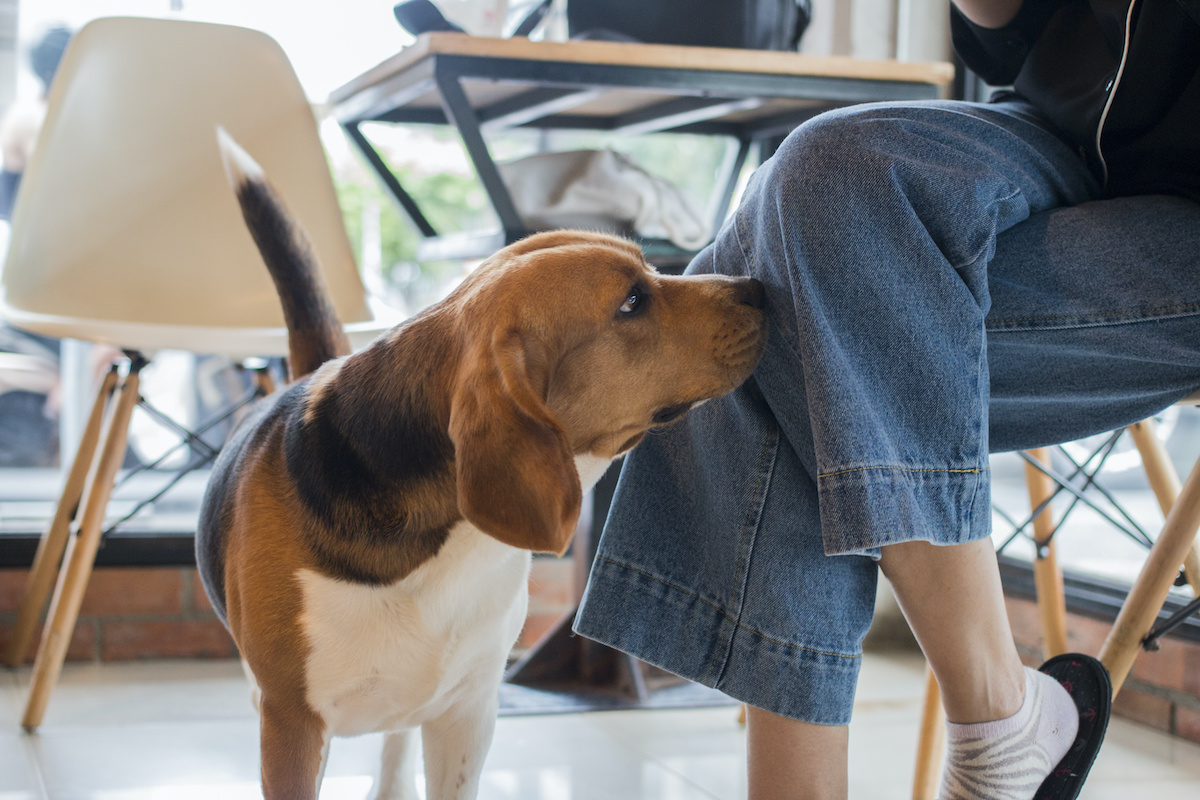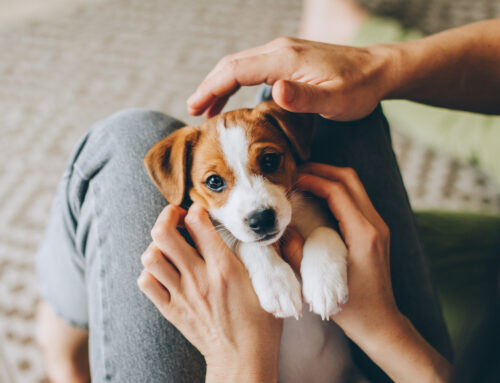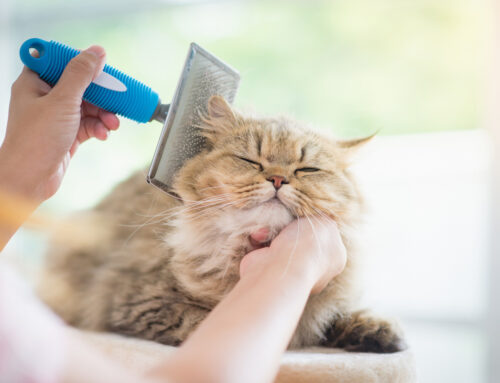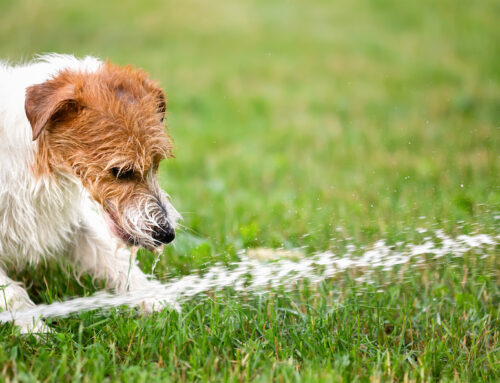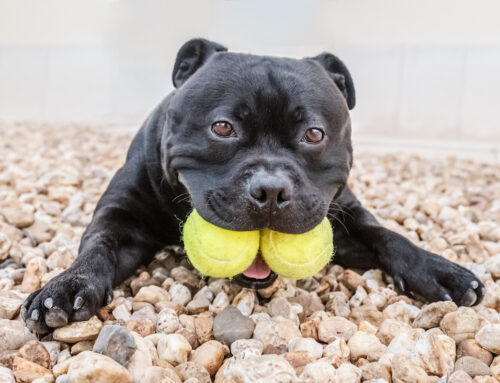We see our dogs do it all the time—sniff another canine’s backside. Inquiring minds want to know: why does your dog sniff your rear end?
If you haven’t wondered it aloud yourself, you are bound to encounter a young child who will do just that. After reading today’s blog post, you will be ready to answer that curious kid’s question! And, since a dog’s human butt-sniffing habit can be construed as annoying and rude, we’ve got a few tips to help you curtail your dog’s nosy nose from poking at your (or your neighbor’s) private parts.
Dogs Detect Scent to Communicate
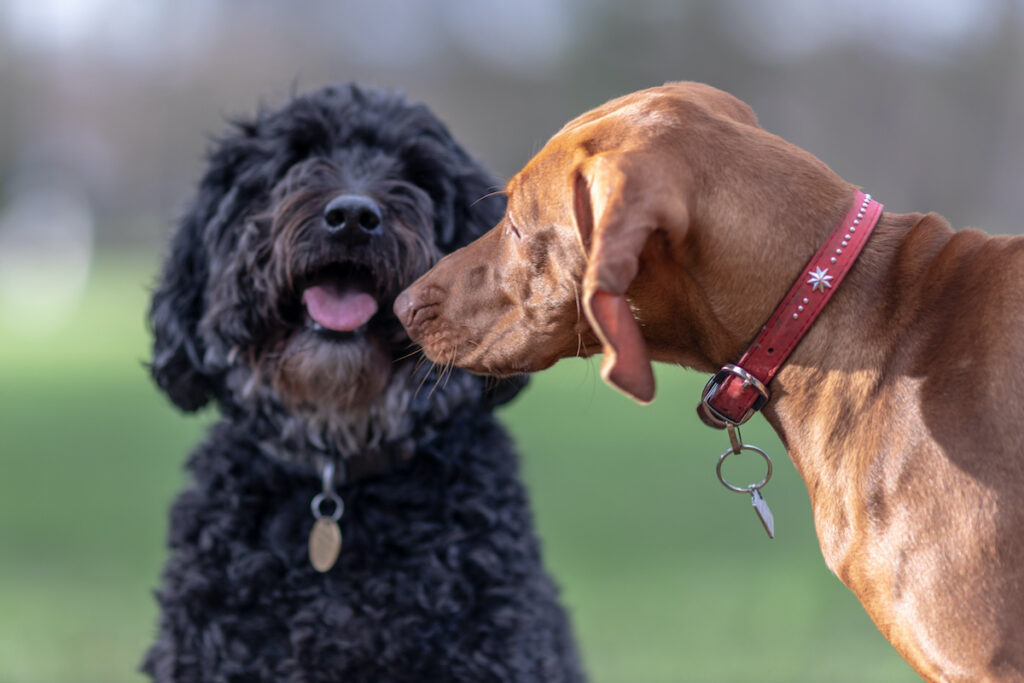 Before we go right to the answer to the million dollar butt-sniffing question, you need to understand a dog’s sense of smell and how this relates to the way they communicate with other dogs and with their humans.
Before we go right to the answer to the million dollar butt-sniffing question, you need to understand a dog’s sense of smell and how this relates to the way they communicate with other dogs and with their humans.
The Power of a Dog’s Nose
Dog’s have a highly sensitive sense of smell that far surpasses human olfactory ability. In fact, compared to a human, the dog’s noses contains 150 million olfactory receptors where as humans have just 5 million receptors. Consequently, you dog has a sense of smell that is at least 100,000 times more sensitive than yours. Put another way, your dog could sniff out a cube of sugar in an olympic-size pool full of Georgia peaches!
Smell is so vital to a dog’s health and survival that 30% of their brain mass is dedicated to detecting and identifying odors. Humans have only 5% of their brain mass dedicated to olfaction sensory experience.
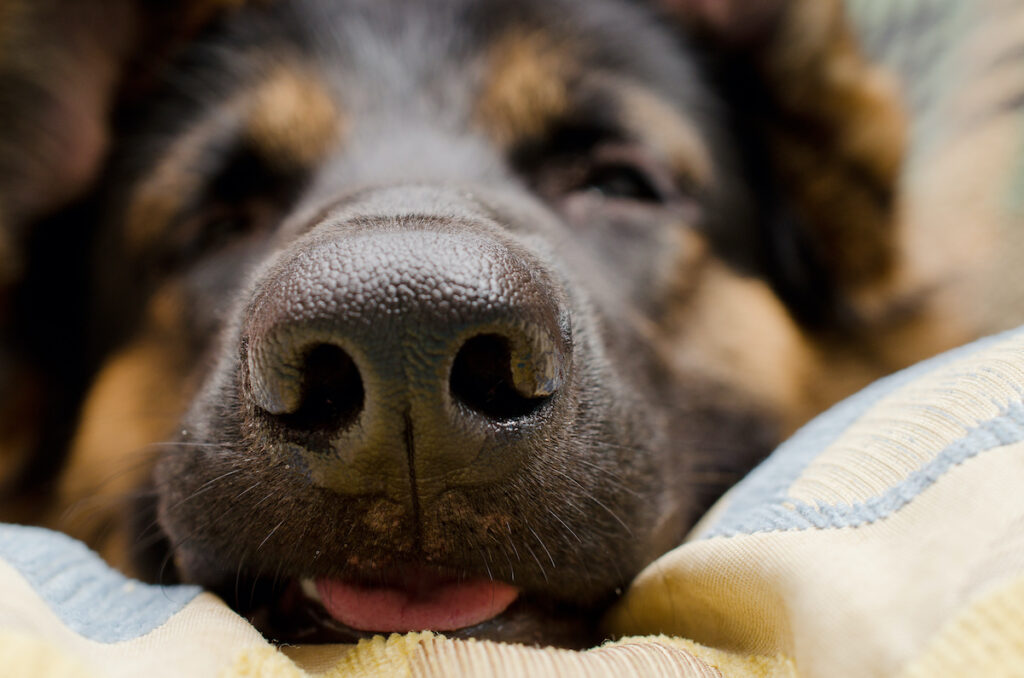
Dog’s Have a Second Olfactory System
Adding to your dog’s super sniffing abilities is a specialized organ called Jacobson’s organ, which sits inside the nasal cavity and opens into the roof of a dog’s mouth just behind the incisor teeth. This is akin to your dog having a second system for olfaction but the Jacobsen organ is designed specifically for chemical communication with the brain. Now, both of these sensory systems work together for scent detection, but the sensory cells in Jacobsen’s organ respond to different odors than the nose. These nerve cells respond to odors that would otherwise be undetectable. What odors and scents are undetectable, you ask?
What a Dog Smells…
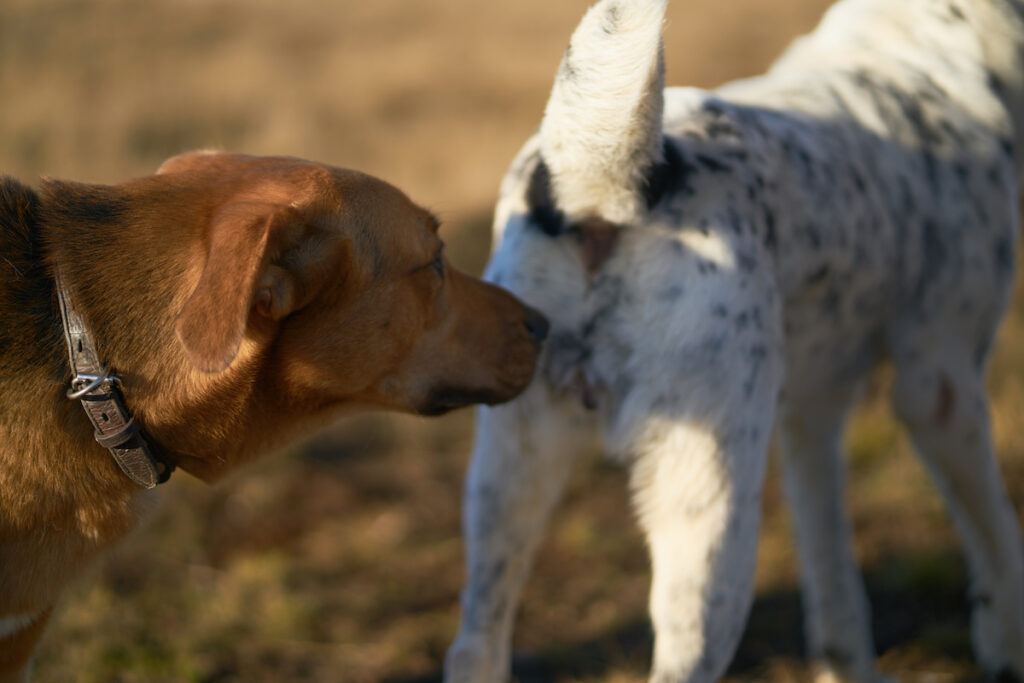
Well, that’s where we get into why dog’s sniff butts—both human rear ends and the rear ends of other canines. First, though, let’s understand what the sensory cells in Jacobsen’s organ help your dog to do:
- identify pheromones (chemical secretions that tell a dog if another dog is male or female)
- identify if a dog is available for breeding
- helps puppies identify their mother by scent, as well as find her milk
- helps puppies differentiate their mother from another nursing mother
Visual Cues, Odors Give Dogs Important Information
Having the combined power of a highly sensitive nose and the unique perceptibility of Jacobsen’s organ also allows your dog to communicate. Since dog’s can’t speak, shake hands, or verbalize emotion, they use visual cues and scent to understand and to communicate. When your dog meets a new canine for the first time, they observe things such as:
- ear position
- tail position
- gaze/eye contact
- body posturing (playful/relaxed/tense/fearful)
- hackles raised or relaxed
Canine Greeting, Scent and Memory
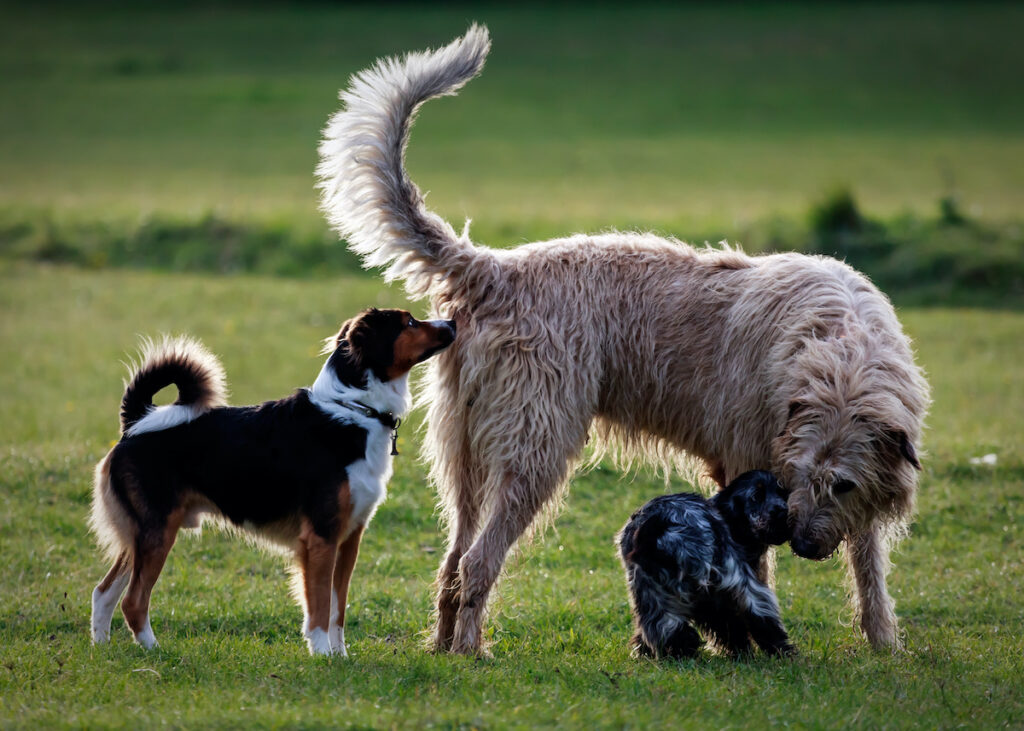 Dogs also use their exceptional sense of smell, picking up on biochemical compounds released by the other dog. These chemical messages identify a dog’s gender, mood, and general “personality” information. However, dog’s don’t usually rely on first impressions. Dogs get up close and person to assess if their first impression is accurate or not—and that is where the butt sniffing comes into play.
Dogs also use their exceptional sense of smell, picking up on biochemical compounds released by the other dog. These chemical messages identify a dog’s gender, mood, and general “personality” information. However, dog’s don’t usually rely on first impressions. Dogs get up close and person to assess if their first impression is accurate or not—and that is where the butt sniffing comes into play.
Every dog has a unique scent, which is concentrated around specialized glands at the dog’s backside. Dog’s sniff each other’s butts to determine if they’ve met before or if this is a dog they are meeting for the first time. Like humans, dogs also have the ability to associate scent with memory and past experience. So, good or bad, scent can tell a dog how to respond:playfully, in fear, with aggression, or indifferently as the case may be.
The anal secretions from another dog also help establish which of the dogs will be dominant and that sets the foundation for the canine relationship. A dominant dog initiates butt sniffing while the more passive dog waits her turn. Dogs may growl during the “sniff n’ greet” to let one another know, “okay, that’s enough.”Sometimes a dog will sit down on its tail to let another dog know, “Hey, that’s enough info for you, right now.”
And this is Why Your Dog Sniffs Your Butt!
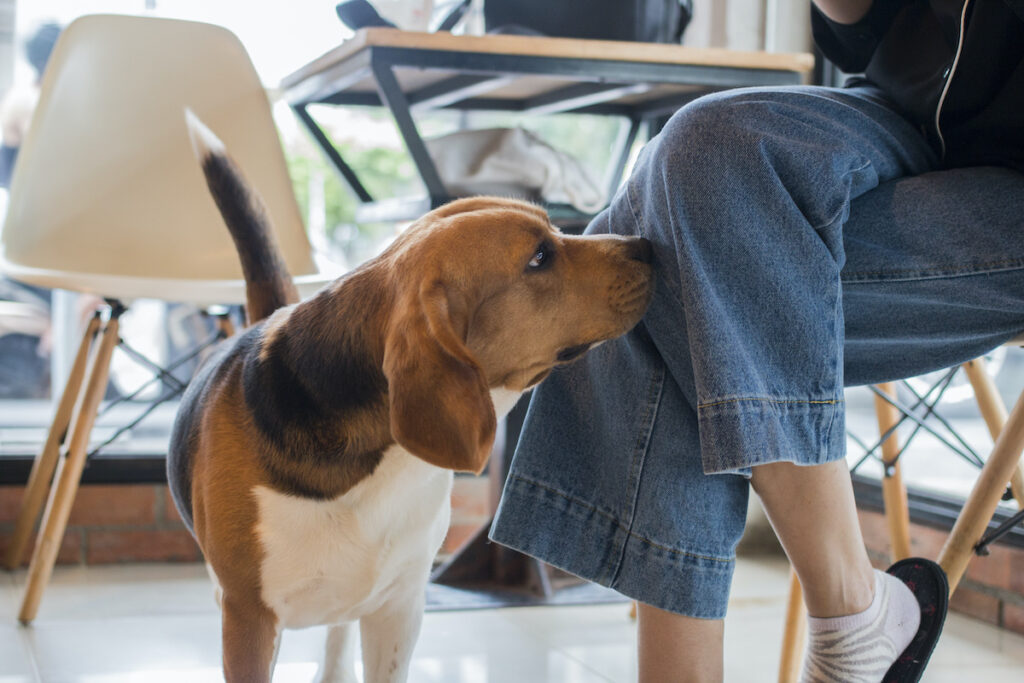 Getting back to a dog’s memory and scent…if a family member dog has been away a while, dogs will butt sniff to catch up on things such as where the dog went, what the dog ate, and even what he did! So, if you’ve been away from your dog for a few hours or longer, your dog will sniff you butt to figure out where you went, if everything is okay, and—believe it or not—as a way to calm down and reduce stress from having been separated from you!
Getting back to a dog’s memory and scent…if a family member dog has been away a while, dogs will butt sniff to catch up on things such as where the dog went, what the dog ate, and even what he did! So, if you’ve been away from your dog for a few hours or longer, your dog will sniff you butt to figure out where you went, if everything is okay, and—believe it or not—as a way to calm down and reduce stress from having been separated from you!
When a dog sniff’s a human butt, she or he is learning if that human…
- is male of female
- is menstruating or not
- has given birth recently or is pregnant
And if that human happens to be a toddler with a diaper full of duty, sniffing may tell the dog a lot about the toddler’s eating habits and mood.
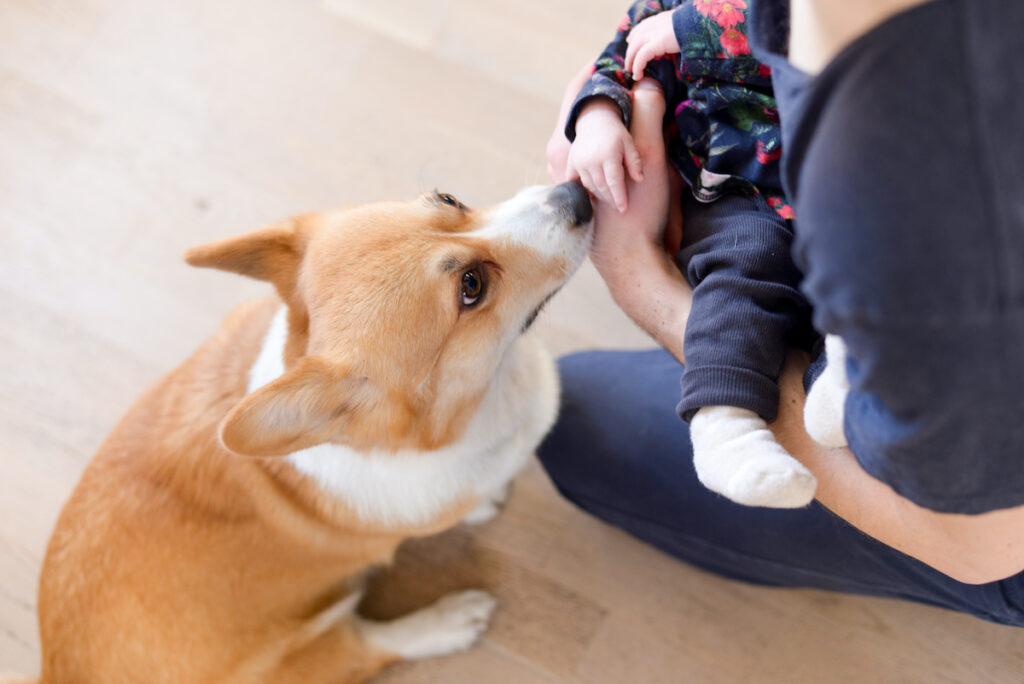
Potentially, these super sniffing abilities are being tested to see if dogs can use their sense of smell to detect cancer, particularly ovarian cancer. More recently dogs are being trained to detect the COVID-19 virus and have done so with remarkable accuracy.
How to Curtail Your Dog’s Butt Sniffing Habit
Butt sniffing is not something you can train out of dog. It is instinctual and necessary for survival. However, no matter how gentle and friendly your dog is, your house guests don’t want to be greeted with a nose-up-the-backside. To curtail your dog’s butt sniffing habit, do these two things:
- Train your dog to sit whenever anyone new enters the house. Reward that behavior. Ignore the dog otherwise or crate her
- Instruct your guests to immediately offer their hand to the dog for sniffing and making their acquaintance.
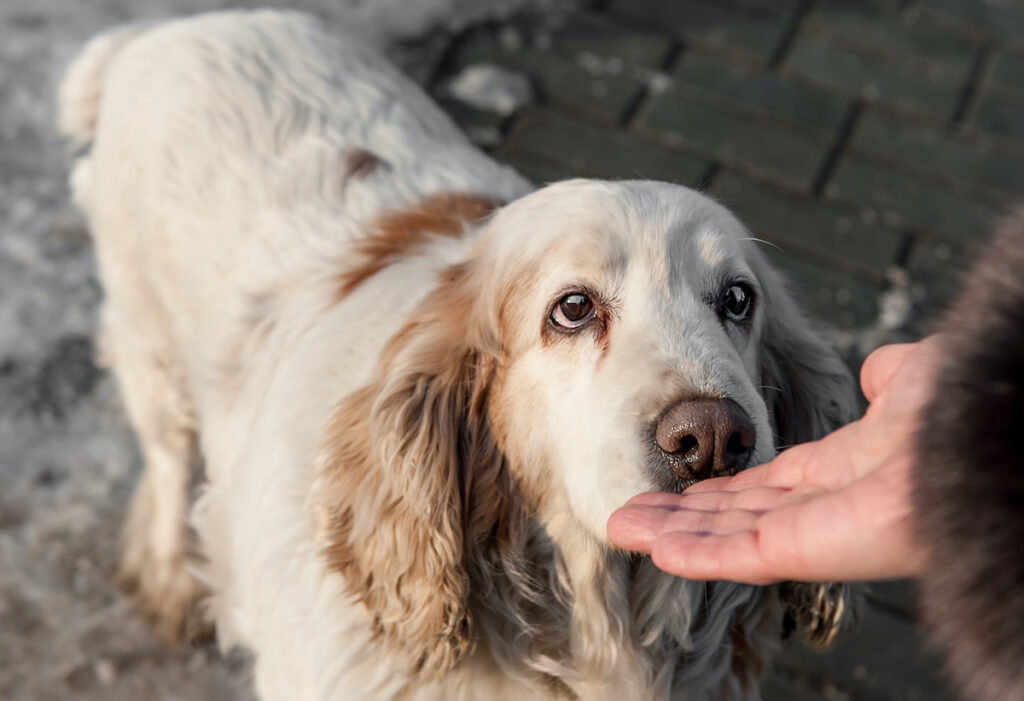
Questions about the Strange Things Pets Do?
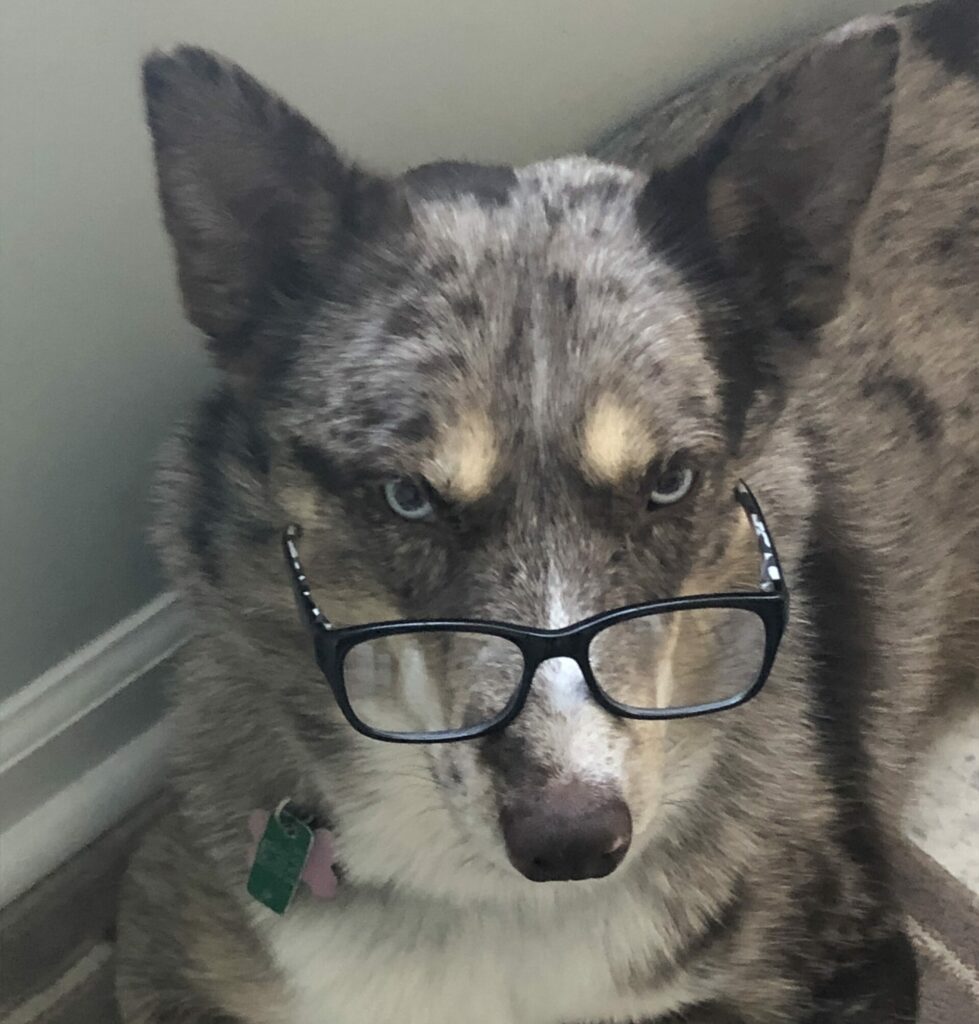
Do you have more questions from curious kids, or perhaps your own observations of your family pet? Cats and dogs of all size, shape, and personality are loved and cared for by the veterinary team at the https://animalcarecentersmyrna.com/our-services/.
We welcome your questions about animal behavior and pet health. Please do bring your questions to your pet’s next appointment or email your question to us…who knows, it may show up in a future blog post!
Did you know that we offer a FREE initial health exam ($60.00) to all new clients? Just visit our website to print the coupon.
Learn More
American Kennel Club “Why Does My Dog Love Sniffing My Crotch?”
Channel Your Dog’s Sense of Smell into Sport
Psychology Today:

